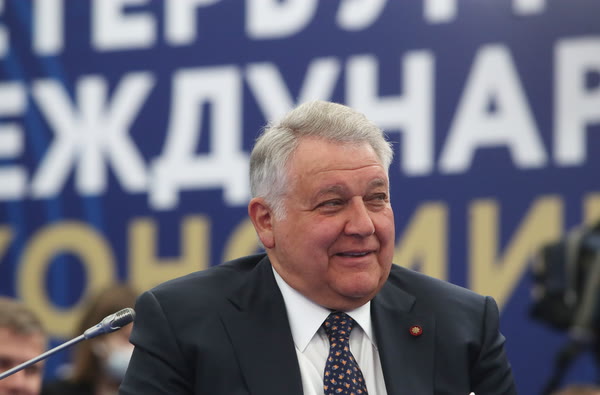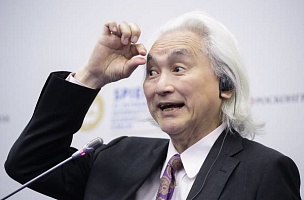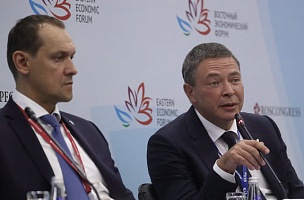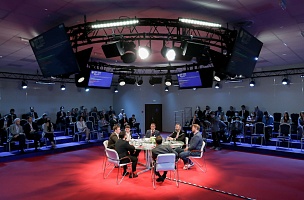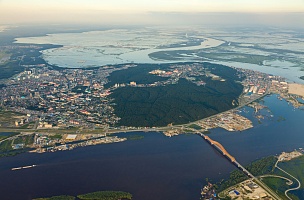KEY CONCLUSIONS
Russians are clearly interested in science and have expectations from it
«When the Year of Science began, we asked to conduct a sociological survey. We asked whether people would like for their children to choose a job in science. Most of the respondents want their children to go into science. This was never the case in the Soviet Union or in modern Russia. [...] This means that science is not something strange,» Aide to the President of the Russian Federation Andrey Fursenko said.
«The most dangerous thing is that parents tell their children: ‘Don’t go into science, you won’t earn any money’, as was the case in the 1990s. This survey suggests that they aren’t saying that, which means that children have more freedom. The happy fact that now mothers aren’t telling their daughters and fathers aren’t telling their sons that there’s no point going into science — this in itself is already a huge leap forward,» Yandex Russia General Director and HR Director Elena Bunina said.
«The period in our country today is absolutely as bright and promising as it was in the 1960s and 1970s because the country seems to be on the rise and at a turning point,» said Mikhail Kovalchuk, President of the Kurchatov Institute National Research Centre.
PROBLEMS
Science has difficulties communicating with society and business
«We have a communication problem with society that is plain to see. Russian science was the first to create one of the world’s best vaccines against coronavirus. But the day before yesterday I looked at the ranking of countries in terms of vaccination rates, and we are in 70th place. This is an obvious problem of communication with society,» said Alexander Dynkin, President of the Primakov National Research Institute of World Economy and International Relations at the Russian Academy of Sciences.
«We can’t determine the priorities for science from our own interests if we view science as an integral tool for the development of society. We aren’t seeing the whole picture. Of course, we can invest in the areas that we need to run our business, which we are doing. But they don’t add up and aren’t fully completing the picture,» SIBUR Holding Chairman of the Management Board Dmitry Konov said.
SOLUTIONS
Science and society can have a dialogue thanks to clear language and awareness of the benefits
«When we develop working relationships with society, we must start with basic human needs. We have to explain that science protects you and that science heals, feeds, warms, and teaches you. And we start with such logic — linear innovation models and applied development, and only get products and services at the end. We have to start from the end and then communication will be more successful,» said Alexander Dynkin, President of the Primakov National Research Institute of World Economy and International Relations at the Russian Academy of Sciences.
«The end product of tomorrow’s product line is sublimated knowledge [...] We are transitioning to a society that will sublimate scientific knowledge. Hence the conclusion: we need to drastically raise the level of society in terms of scientific literacy,» said Mikhail Kovalchuk, President of the Kurchatov Institute National Research Centre.
«We are looking at what to do so that as many students and schoolchildren as possible become researchers. There is no royal judgment. [...] Apparently, we need to work on the content and make the language itself accessible and work on the interfaces,» Minister of Science and Higher Education of the Russian Federation Valery Falkov said.
«As an association named after Helmholtz, we are developing citizen science so that people don’t get lost in these technologies. We invite society and people to take part in research work. I think this will be a trend in the 21st century because the labour market will change very soon, and we will need to somehow find something for people to do,» Head of the Helmholtz Association’s Moscow Office Elena Eremenko said.
In terms of ordering scientific developments, the government should play a key role, while business should solve its local problems
«There is a revolutionary process of convergence and the alignment of disciplines. This is the natural logic for the development of science. It’s important, but it cannot formulate the tasks of science. You have a business. It can pose a particular question, but it can’t form a global request. [...] The main customer is the state, but it should not be a monopoly customer. It should be the conductor and harmonizer of these processes,» said Mikhail Kovalchuk, President of the Kurchatov Institute National Research Centre.
«Now is the time when we need to create new formats of scientific institutions and centres that will quickly respond to the challenges that time has put before us. We plan to create a thinktank or brain centre on the core of the Institute of Far Eastern Studies of the Russian Academy of Sciences. This is one way to bring business, the state, the scientific community, and society closer together as a whole. They are the ones that make it possible to respond to three main challenges: settling the streams of information that are off the charts for all of us, developing prompt decisions on certain issues and conveying national interests, and strengthening them abroad,» said Kirill Babaev, Deputy Director of the Institute of Far Eastern Studies of the Russian Academy of Sciences.
For more, see the ROSCONGRESS.ORG Information and Analytical System.


